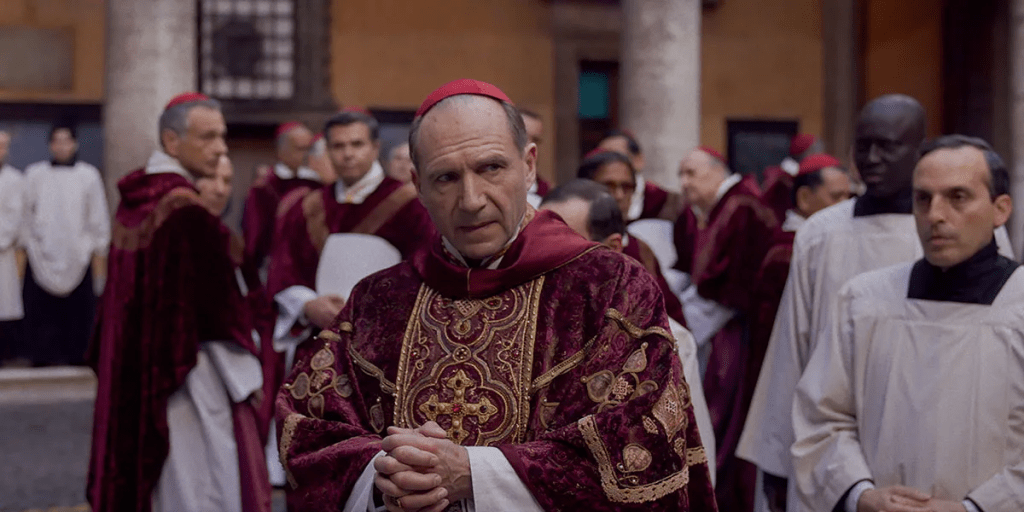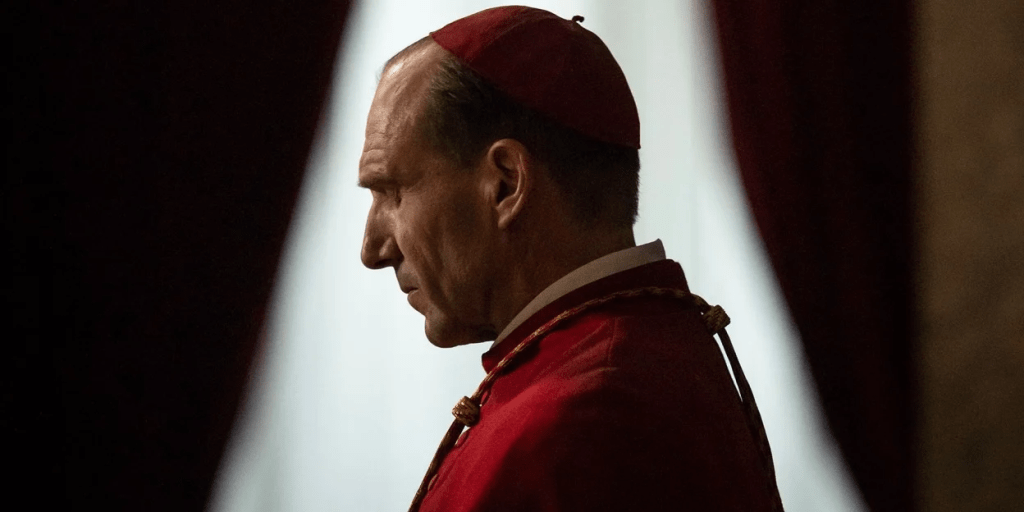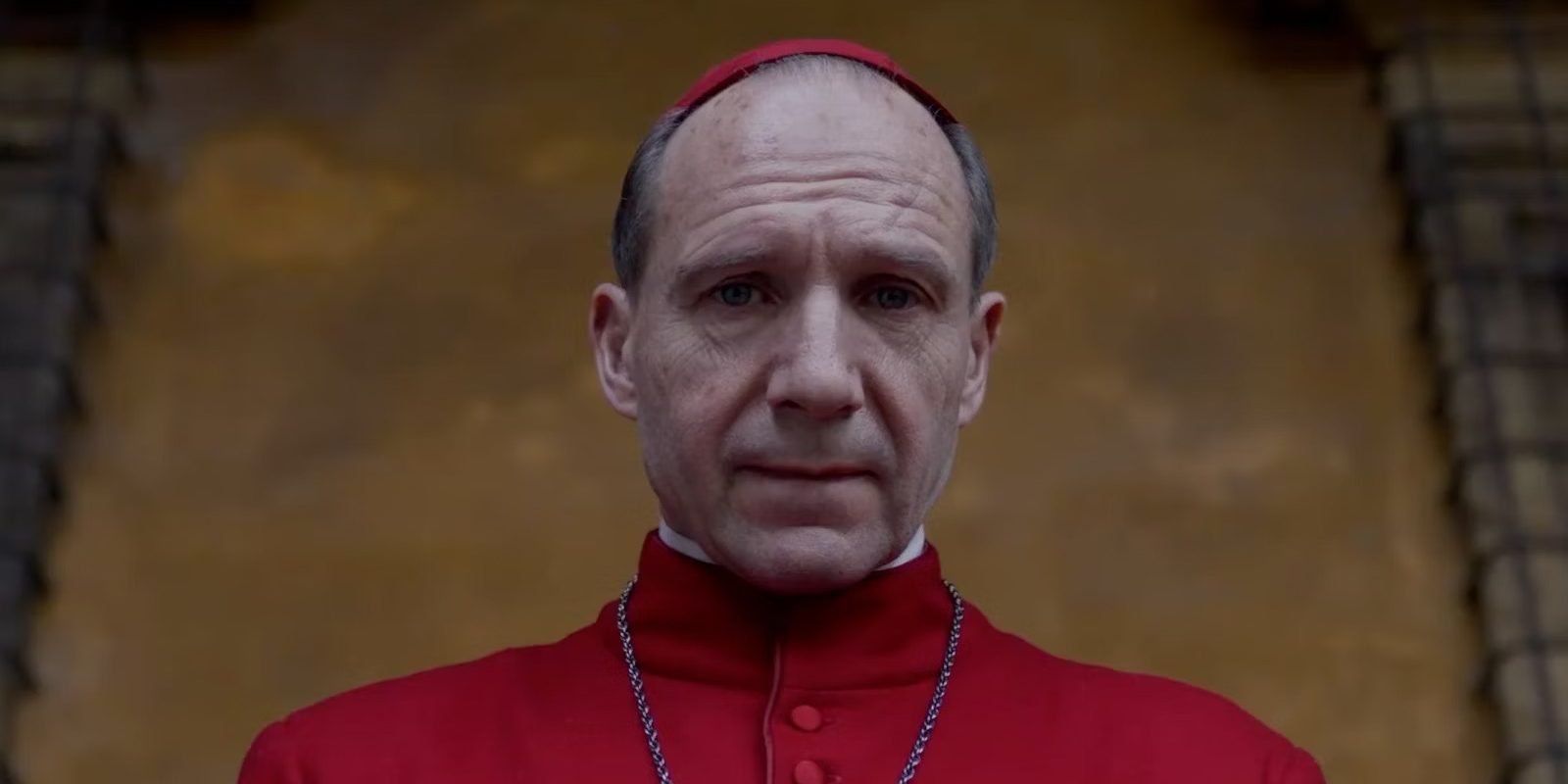Helmed by Edward Berger, the religious thriller drama ‘Conclave‘ stars Ralph Fiennes as Thomas Lawrence, a British Cardinal who is responsible for conducting the papal conclave following the pope’s death. As secrets and agendas threaten to destroy the church’s reputation, Lawrence finds himself at the epicenter of the fallout as he tries to manage a hungry group of cardinals as they contest to be elected as the next pope. The central drama is made all the more real by Fiennes’ performance, whose character breaks into a homily spoken predominantly in Italian in the early parts of the narrative. In a story where language plays a significant role in disseminating religious teachings and zeal, Fiennes’ forays into Italian and Latin help build a real sense of authenticity for the movie’s Vatican backdrop.
Speaking Italian and Latin Was a Huge Driving Force For Ralph Fiennes in Conclave
Although Cardinal Thomas Lawrence may be British in origin, Ralph Fiennes was not dissuaded by his character’s roots to forgo his dedication to speaking Italian and Latin in specific moments within the story. It was essential to him to delve into the languages to help build a connection between his character and the world he had inhabited for several years. As a senior member of the ecclesiastic hierarchy, it was even more important for Lawrence to be fluent in the Roman church languages. He wanted to be super meticulous about his Italian, wishing to embody the idea that his character had been living in Italy and Rome for the last 25 years of his life. Therefore, paying attention to every syllable and word he spoke was integral in crafting that illusion, and so was his mastery of the Italian language.

Director Edward Berger commented on Fiennes’ Italian delivery during the homily scene by stating, “So Ralph starts out the speech in Italian, and Ralph spent a long time practicing Italian, and he was actually very, very adamant. We always had a dialogue coach or someone like an Italian woman there who listened to his diction and everything.” The scene sticks out as one of the more notable sections where the actor had to speak a large chunk of his dialogue in Italian. However, his forays into Latin are just as impressive, albeit spaced out more intermittently throughout the narrative. They are mostly confined to the sections where his character recites a prayer or adage, showcasing his adherence to his faith despite going through somewhat of a crisis internally.
Berger was particularly complimentary of the Oscar-nominated actor’s diligence in learning the languages. According to the director, Fiennes “took a lot of pride in that, and a lot of pride in his craft,” and that he “wanted to get to the truth.” Ultimately, the decision paid off as it helped bring an additional layer of realism to his character and helped frame him in his environment more profoundly.
Ralph Fiennes’ Character Was Originally Meant to Be Italian

It feels difficult to divorce Thomas Lawrence’s British roots from his actual persona, especially given how his stoic and understated appearance is intrinsically built into his characteristics. However, in the first version of the story, Fiennes’ protagonist was meant to be replaced by Cardinal Jacopo Baldassare Lomeli, an Italian Cardinal who is also the protagonist of the eponymous novel by Robert Harris, which the movie was based on. Edward Berger initially wished for the character to be played by an Italian actor but progressively shifted from the idea when wondering about the project’s accessibility to an international audience. Thus, he alighted upon an intrinsically British character built in the same mold as Anthony Hopkins’ character in ‘The Remains of the Day.’
In some ways, the character’s step into a British sensibility brought a seamless authority to his figure. Berger explained in a Deadline interview, “What the change to an Englishman also brought is that sense of immediate authority. The English are very good at that.” It is undeniable that Ralph Fiennes exudes this sense of power in every scene of ‘Conclave,’ albeit brewing under the surface at most times. However, his actual aura and air of inscrutability comes through his dedication to sticking to the small details of his part. In the Vatican thriller, this happens to be his occasional drifts into Italian and Latin, which may seem superficial on the surface but build an overall sense of belonging that is hard to compensate through other means.
Read More: Conclave: Is Vincent Benitez Based on a Real Pope?


You must be logged in to post a comment.